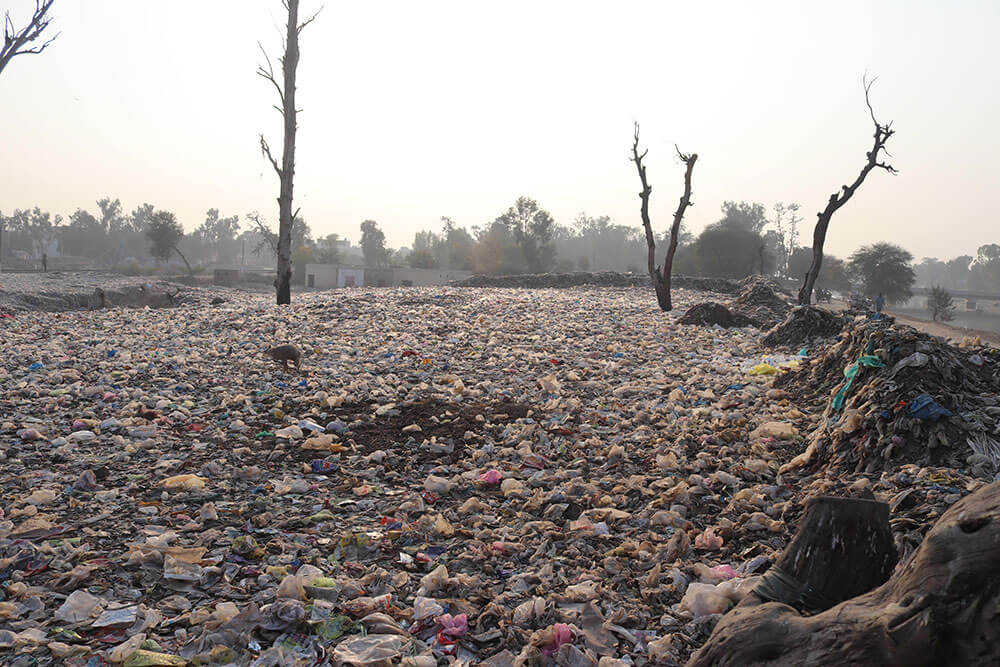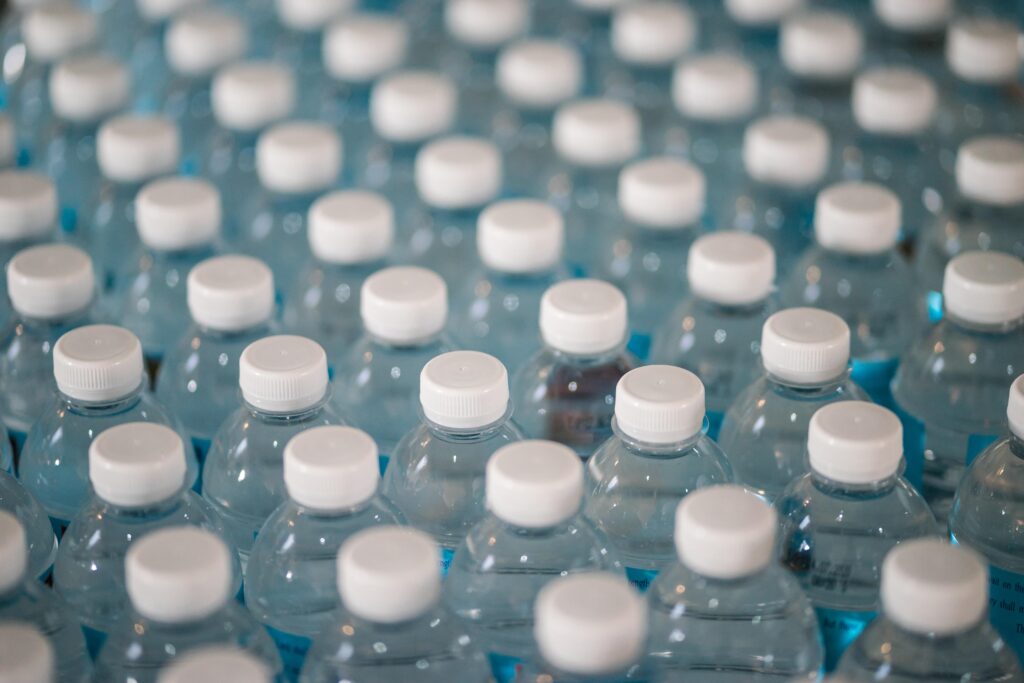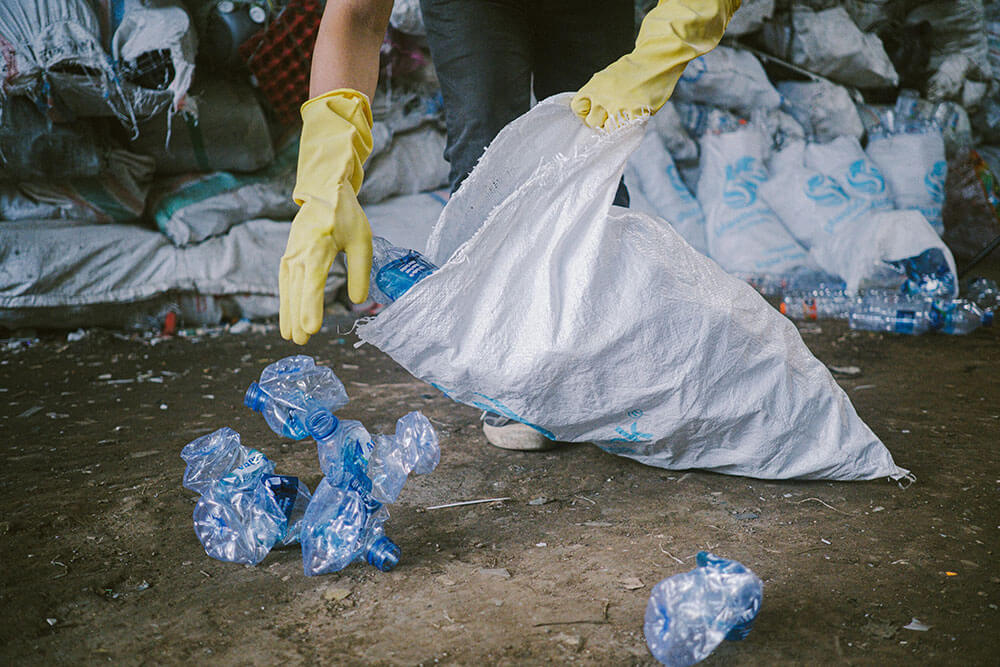Minutes to read: 4 minutes
 Photo by Muhammad Numan on Unsplash
Photo by Muhammad Numan on Unsplash
Single-use plastic is a type of plastic designed to be used once before being discarded. We encounter this plastic in everyday items such as plastic bottles, disposable cups and cutlery, shopping bags, shampoo bottles, straws, food packaging, and more.
While single-use plastic has become an integral part of our life for the convenience it offers, it led to the development of the throw-away culture — a sad cycle of buying, using, and discarding without thinking twice.
A short trip to the grocery store contributes to the degradation of our planet. Almost everything we grab is wrapped in single-use plastic packaging. Once we reach the check-out counter, our items are packed into more plastic bags only to be discarded on reaching home.
Unfortunately, many of us still don’t understand the consequences of our behavior. We vilify plastic as if it is the problem, but it is actually our demand for convenience and approach towards plastic usage that endangers our planet.
 Photo by Jonathan Chng on Unsplash
Photo by Jonathan Chng on Unsplash
The production of single-use plastic and its impact
Despite the heightened global efforts to curb the plastic tide, the production process of single-use plastic is still rising. According to UNEP, humans around the world purchase one million single-use plastic bottles every minute and use up to five trillion plastic bags annually1.
The recently published Plastic Waste Markers Index showed that the demand for virgin single-use plastic grew at 2.6%, over two years, from 2019 to 20212. When it comes to single-use plastic waste, we generated 139 billion kilograms in 2021, an increase of 6 billion from 20192. Virgin plastic contributed 15 times more to this growth than recycled feedstocks2, and our waste is polluting and wreaking havoc in our ecosystems.
Aside from being a pollution problem, single-use plastic is a human problem. Single-use plastic is commonly produced from crude oil or natural gas through a process called polymerization. During polymerization, molecules of hydrocarbons (the main components of crude oil and natural gas) are converted into polymers – long chains of molecules that can be used for a number of purposes. This production process involves heating the hydrocarbons to an extremely high temperature and combining them with other chemicals to form the desired product. The entire production process emits greenhouse gases into our atmosphere that trap heat from the sun, causing global warming3.
Plastic Waste Markers Index reports that the greenhouse gas emissions from creation to disposal of single-use plastic in 2021 were around 450 million metric tons CO2e (carbon dioxide equivalent) – the rough equivalent of the annual greenhouse gas emissions of the United Kingdom2. It is evident that the more new plastic we produce, the more climate change worsens.

Solving the plastic crisis
Due to our throw-away attitude, we have fueled the excessive production of single-use plastic products. It is important to understand that there will never be a world without plastic. As Plastic Bank Founder, David Katz, said, “If humanity is to exist in another 500 years, it would be in part because of the material.”
Plastic is one of humanity’s greatest inventions, contributing to the advancement of various industries and our civilization as a whole. It’s how we have been treating it that is bringing us and over 800 other species to the brink of extinction4. It’s time for us to take responsibility for our behaviour.
Here’s how you can begin:
Exhibit demand for sustainable products
As a consumer, your purchases hugely influence what kind of world the next generation will live in. Start by saying no to single-use plastic and buying reusable products or items that are made of recycled plastic. In a survey conducted in the US, 55% of the respondents say they are concerned about the negative impact of the plastic packaging of the products they are buying5. You are not alone, and together, we can push manufacturers to create products and materials designed for circularity.
Sort your plastic waste for recycling
Plastic recycling is one of the crucial steps to preventing the increase of mismanaged plastic that leaks into the environment. However, only 9 percent of the plastic in the world has been recycled6. You can help change this by sorting plastic waste at home. Segregate the recyclable plastic and drop them into your local recycling bins or bring them to a nearby plastic collection branch.
Support ethical recycling communities
Private organisations are helping turn off the tap to plastic pollution. The social enterprise Plastic Bank, for example, is driving a social recycling movement that uses plastic waste as a currency to help alleviate poverty and stop ocean plastic. It offers opportunities for individuals and businesses to make annual or monthly contributions and support recycling communities in vulnerable coastal areas.
In these communities, collection members gather plastic waste and exchange it for secure income and life-improving benefits, including access to health, work and life insurance, digital connectivity, and social and fintech services. By joining the movement, you will help reduce plastic pollution and poverty.
Want to learn more about how you can become part of the solution? Visit plasticbank.com today.
- Our planet is choking on plastic,” UN Environment Programme, https://www.unep.org/interactives/beat-plastic-pollution/
- Plastic Waste Markers Index”, Minderoo, https://www.minderoo.org/plastic-waste-makers-index/#key-findings
- Melissa Denchaki, “Greenhouse Gas Effect 101” NRDC, July 16, 2019, https://www.nrdc.org/stories/greenhouse-effect-101
- “UN report finds marine debris is harming more than 800 species, costing countries millions,” UN, Dec 5, 2016, https://www.un.org/sustainabledevelopment/blog/2016/12/marinedebris/
- David Feber, et. al., “Sustainability in packaging: Inside the minds of US consumers,” McKinsey & Company, October 21, 2020, https://www.mckinsey.com/industries/paper-forest-products-and-packaging/our-insights/sustainability-in-packaging-inside-the-minds-of-us-consumers
- “A Whopping 91 Percent of Plastic Isn’t Recycled,” National Geographic, December 20, 2018, https://education.nationalgeographic.org/resource/whopping-91-percent-plastic-isnt-recycled/ttps://education.nationalgeographic.org/resource/whopping-91-percent-plastic-isnt-recycled